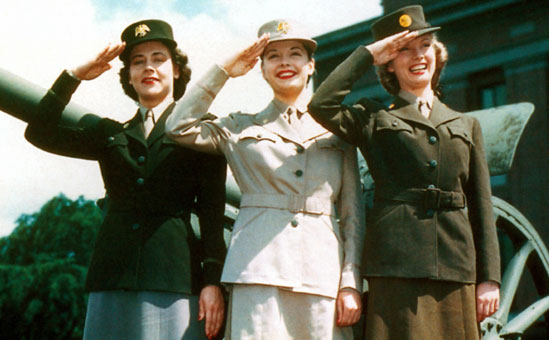Get Your Script Reviewed On Scriptshadow!: To submit your script for an Amateur Review, send in a PDF of your script, along with the title, genre, logline, and finally, something interesting about yourself and/or your script that you’d like us to post along with the script if reviewed. Use my submission address please: Carsonreeves3@gmail.com. Remember that your script will be posted. If you’re nervous about the effects of a bad review, feel free to use an alias name and/or title. It’s a good idea to resubmit every couple of weeks so your submission stays near the top.
Genre (from writer): WW2 Romantic Drama, Coming-of-Age, LGBT
Premise (from writer): After a near-fatal crash-landing, an American pilot falls for her aristocratic physician, forcing her to confront her sexuality and gender prejudice of class-divided WW2 Britain.
Why You Should Read (from writer): It’s shamelessly greedy, I know, to try for a second bite at the AOW cherry when so many others are still vying for their first. But I got so much terrific advice from the first bite, and TCF’s evolved as a result. This is partly a ‘Thank you; I heard you.’ — Back on July 18th, 2013, Carson warned about the six types of scripts least likely to get you noticed. These included the coming-of-age script and the straight drama. Needless to say, I didn’t get that memo until ‘way too late and rolled two types into one script. Mulesandmud commented recently about a producer asking him why he’d ruin his career writing a female protagonist. I didn’t get that memo, either, and I’ve included two of ‘em. In poker parlance, I’m going ‘all in.’ No guts, no glory. But mostly I’ve just tried to write what I’m passionate about. In this case, a young woman’s coming-of-age / coming-out story set against the backdrop of WW2 and her work as a ferry pilot. Fictional protags, but lots of real historical details, events, and a few characters based on real people to heighten authenticity. I humbly invite you to again be the judges, and thank you in advance for your feedback.
Writer: Angela L. Neale
Details: 130 pages
This one garnered a TON of commentary in Amateur Offerings, mainly due to Angela’s willingness to thank everyone for reading her script and engage in discussion. Having said that, Angela was slightly defensive at times. Some responses like, “I can’t do that because…” Or “That’s not possible.” With a script, anything is possible. You’re God. You can change anything and everything you want. For example, Angela mentioned that she couldn’t add anything else because her script was already 131 pages and that would make it even longer.
I’ve seen writers say this kind of thing a lot. You can add anything. You just have to get rid of some stuff as well. Getting feedback on what’s clicking and what isn’t allows you to make those cuts. Sure, you may think that Count Harold’s subplot is an essential component to conveying your theme, but if it only casually intersects with the main plot, it might be time to jettison it. But we’re getting ahead of ourselves. Let’s see what’s causing all the discussion.
The Cloud Factory introduces us to 18 year old World War 2 pilot Jenny Morgan, or “Bubbler” as she’s known to her friends (a “bubbler” is what they call water fountains in Wisconsin. I remember being told this as a child and I’m still baffled by the term).
Once in Europe, Jenny ends up piloting a bad plane that crashes after take-off, barely surviving the ordeal. She’s sped over to the nearest hospital, where she befriends a cute nurse, 25 year old Allison. Allison is a lesbian but does NOT get involved with patients and is NOT into the whole teenage thing. 18 is way too young for her.
Uh-huh, riiiii-ght Allison.
Jenny is just now coming into her sexuality. She hasn’t had a boyfriend or girlfriend or anything yet. All she knows is that she’s attracted to Allison more and more every day. Pretty soon, the two find themselves sharing lingering looks and touches, skating that line between professional and personal, until Allison can’t handle it anymore.
Once she graduates from patient to civilian, Allison is all about The Jenny, and the two hang out non-stop. In the meantime, Jenny is being questioned about her involvement in that plane crash, with the implication being that she’s in some serious doo-doo if it was her fault.
The rest of the script is pretty straight forward. Jenny and Allison hang out a lot, talk about life a lot, and become closer. That’s essentially “The Cloud Factory” in a nutshell.
The Cloud Factory is one of those scripts you read and you just sort of nod your head every once in awhile, mumbling things like, “Not bad,” but never feel all that close to what’s going on. This is confusing for the writer, who believes that by writing such a personal character piece and not some wham-bam effects heavy blockbuster, that emotion is ALL the reader should be feeling.
What they don’t realize is that people talking and developing a relationship is a pretty generic thing to watch. To keep a reader engaged, the script needs structure and it needs drama. These are two things The Cloud Factory is lacking.
Let’s start with the lack of drama, which, to keep things simple, means a lack of conflict. There is some conflict in the script, in that Allison and Jenny aren’t sure if the other likes them. But it’s so light to the point of it not even existing. We know, since we’ve seen both of them confide in friends, that they like each other. So there’s no doubt in our minds that they’re going to get together. That eliminates a ton of potential suspense.
It also leaves the exterior world responsible for injecting all the conflict into the story. Unfortunately, there isn’t any exterior conflict. Besides a pesky close-minded nurse, there’s no reason why these two can’t be together. At least none that was clear. Being a lesbian in the army wasn’t exactly given a huge endorsement, but according to other characters, it wasn’t a career-ender either. And while the hospital seemed to look down upon worker-patient relationships, you didn’t get the sense that anything terrible would happen if one occurred.
In any script, you have to establish stakes. If you want to convey that two people will have a tough time being together, you have to make clear that if they’re caught, they’ll have hell to pay. Look no further than the greatest love story of all time, Romeo and Juliet, to see how that works. People’s LIVES are at stake. Their families’ lives as well. Here, it just seemed like if Allison and Jenny got caught, someone was going to get a slap on the wrist and a dirty look.
But that isn’t the biggest problem with The Cloud Factory. The biggest problem is the lack of structure. Once we get into that hospital, the script just sprawls on endlessly into a mostly mundane “we’ve seen it all before” relationship.
If your entire focus of a script is a love story, it’s gotta be one hell of a love story. Two people talking about life and how difficult being a lesbian is for 115 pages in a hospital isn’t enough. I mean look at The Fault In Our Stars. There was so much AT STAKE in that movie. This might be this girl’s last chance to do anything exciting again ever. She wants to find out what happened after her favorite book ended. And this is going to be her ONLY shot. This is it! The drama is heightened. We want so much for her doctors to let her go and find out the truth. That’s drama!
So what I’m going to do here is pitch the Hollywood-Friendly version of this story. Angela can ignore it, but if you want to make this more mainstream and more studio-friendly, this is the route to go.
In this new version, Jenny’s plane crashes, but she’s not injured as badly. She’s hurt just enough for, maybe, a week of hospital stay. This is where she meets Allison, just like now, and the two start up a friendship, which leads to a relationship.
One of the reasons the current draft is kinda rambly is because there’s no focused time frame. There’s no finish line for the reader to look forward to. So I say, the army informs Jenny that she’ll be shipped out in two weeks. Make it clear that after this happens, Jenny will never be back here. This is the only time she will ever be in this town. This way, the stakes are high. Their relationship will only last until she has to leave.
The two then spend the second week in the city together (after that first week of recovery and getting to know each other), fall in love, both ignoring the reality that this affair is temporary. The more they fall in love, the more devastated we’ll be that that that love is coming to a close. Sort of an elongated version of Before Sunrise.
From there, I would create more exterior conflict wherever possible. Your job is to make us doubt that this relationship is going to work out in as many ways as possible. For example, maybe Allison is more torn between this life of being a lesbian and taking the “easier” traditional route. An old boyfriend comes back into town (in the second half of the script). He’s rich. He’s well-liked. Marrying him will result in that easy perfect life, whereas being a lesbian means fighting a battle every day that she doesn’t know if she can fight. Show her battling with that as the deadline approaches.
I would also put them a lot closer to the war, possibly in a city that’s in constant danger. I don’t like ideas where the most unique or biggest parts of the idea aren’t explored in the script. This is a script about women flying fighter planes during World War 2. Except for 90% of the story, we’re not flying in fighter planes and we’re nowhere near World War 2. By putting them in a place that’s more affected by the war, that danger could impede upon their relationship in interesting ways.
As far as integrating the pilot stuff more, maybe Jenny learns at some point that they need extra fighters for a big mission and they’re considering bringing in female pilots. This is her DREAM. And it’s finally coming true. So as the end of the two weeks nears, she’ll get the call. They want her for the mission. And now she has to make a choice – go out there and live her dream or stay with this woman she’s fallen in love with. That gives the script that bigger focused ‘climax’ it’s desperately in need of.
I’m not saying you MUST do this or the script has no chance. You can go with the slower artsier less plot-point-y type of screenplay, but I contend that every story needs drama, big or small, and right now The Cloud Factory is too low-key. It needs a few shots of adrenaline.
I hope that helps Angela, if not in this script, then in the next script she tackles. Her writing is strong. But storytelling is where it’s at. That’s what you have to master.
Script link: The Cloud Factory
[ ] what the hell did I just read?
[x] wasn’t for me
[ ] worth the read
[ ] impressive
[ ] genius
What I learned: In every story, your job is to make us doubt that it’s going to work out for your protagonist in as many ways as possible.



